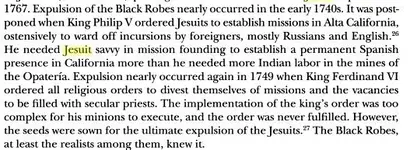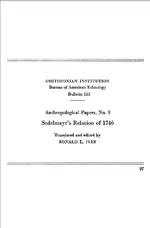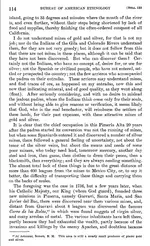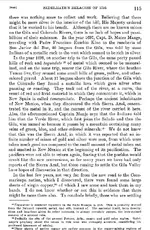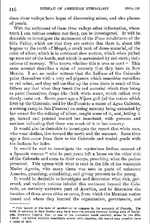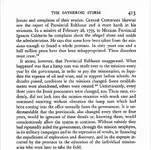Don Juan Bautista de Anza
My Dear Sir:
I arrived at this mission the 30th of June having been at your house en route, where your wife and servants elegantly put into practice their
[page 27]
charity as you have instructed and accustomed them to do. There is nothing new here.
The Indians expect to be advised to go out to campaign. They are very wild, without doctrine even in their own language, because, although they pray together, no one by himself understands. Even the most advanced respond with any word, so I endeavor to get them to come to catechism. Yet it is not achieved unless it is in the greater number of youngsters who do it well. On the contrary are those who have already reached adulthood: these only attend on feast days. They say that they have always been reared so that adults go to the fields and the children to catechism. For the present I do not urge earnestly until I see how things are.
The Tugsones gave me to understand that they have not wanted any other priest than me, having understood the goal I impose on them that the priest does not come so that they might work for him, etc., with which they are rather happy. They have already built me, a little hut among their own. Three times I have been there and I have told them that in the coming month of August I am going to stay some fifteen days, and that they are my children like those of San Javier, and it appears that they are in a good humor.
The soldiers behave divinely, giving a good example in calling these people to the doctrine as any good Christian is obligated to do.
In my harvest time, I expect illnesses and other hardships which everyone has predicted for me. Yet right now only the flies and mosquitoes have moderated. As for the rest, you know how things can go with me.
The Jesuit fathers of San Javier, with all their cows, fields, horses, etc., were occupied with labors, but with my stipend I shall not be, good sire. I commend it to God who alone is able to bring you here, but may it be as soon as possible that we may together enjoy this carefree existence. Here they call one room that of the captain. Thus it has been and shall be, and not for a poor house of St. Francis have they to leave. I await news, and if God aids our arms and some captains or troops are in Pitíc, I should like to know it.
God Our Father, etc. San Javier. July 29, 1768
FR. FRANCISCO GARCÉS




